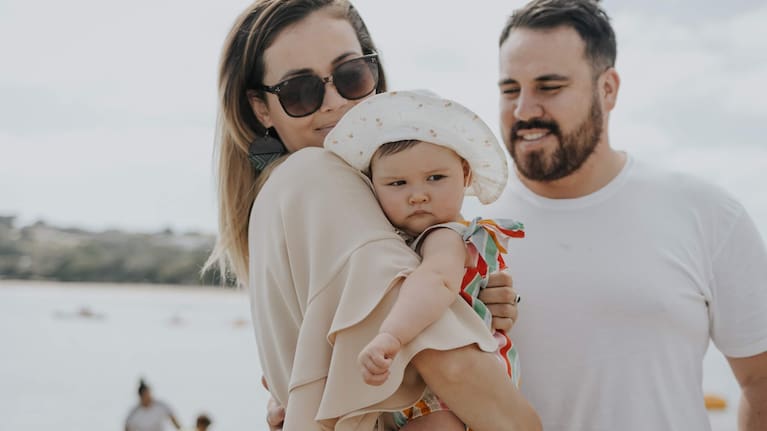Forget nappies, cravings and baby rattles. The Mai I Kurawaka podcast goes straight to the heart (or womb) of pregnancy.
By Bronson Eruera Perich
The pain of infertility and the horrors of losing an infant to miscarriage are just a few of the topics covered. Mai I Kurawaka creator Lizzie Strickett says she created the podcast to fill a gap in the audioscape.
“It came about when we got pregnant with our first baby and there kinda wasn’t a lot of Māori resources I could relate to,” Strickett said.
“Lots of podcasts out there that were NZ produced, but the stories weren’t specifically Māori."
Strickett has worked in the maternity field and says she’s observed how pregnancy was a motivator for parents to explore their geneology.
Changing the negative narrative around Māori parents in the media was another motivator for the podcast as well.
Despite the podcasts being created from a Māori perspective, Strickett hopes the podcast will be useful to a wide variety of people.
“There is a real interest in hapūtanga outside of being hapū (pregnant) yourself,” Strickett said.
“I hope is that this podcast will be a resource for those in the maternity care space.”
One Mai I Kurawaka episode features Simon Strickett and his wife Tash. The Stricketts were struggling to conceive, and extensive testing revealed that Simon had a genetic defect.
Lizzie Strickett says Simon was devastated and had nowhere to turn to for support.

“He said it was so lonely he was looking up chatrooms,” Lizzie Strickett said.
After extensive wānanga (discussions) with their whānau, the Stricketts decided to accept a sperm donation from their whānau.
Lizzie Strickett’s partner, Peter van Kampen, explains how the podcast connects people together.
“I think that’s kinda one thing that this pod can do is connect people up with other kōrero,” Kampen said.
“We have a lot of work to do in decolonising our midwifery workforce.”
Māori midwives are hard to come by. The 2020 Midwifery Workforce Survey showed that a total of 331 out of 3274 Midwives identified as Māori.
Lizzie Strickett says she was making 90-minute roundtrips from Auckland’s North shore to visit her Māori midwife.
“We could only find one Māori midwife (on the Shore) and she only did hospital births,” Lizzie Strickett explained.
They wanted a home birth and were willing to make the trip to facilitate that.
Having worked in maternity, Strickett says it’s time to “decolonise” midwifery so it can service Māori better.
She says when parents don’t have to make 90 minute round trips to access a Māori midwife, that’ll be a sign of progress.



















SHARE ME